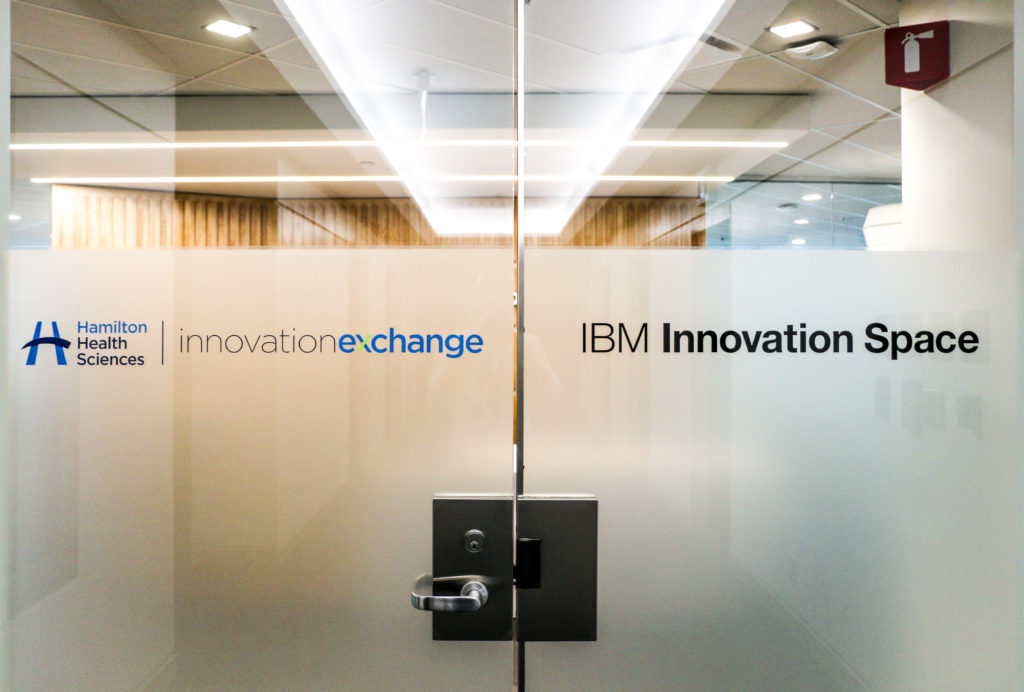
The business of innovation: an HHS connection
Two projects with a Hamilton Health Sciences (HHS) connection are finalists in LiONʼS LAIR, an annual competition presented by the Hamilton Chamber of Commerce and Innovation Factory.
“It’s wonderful to see these two businesses recognized,” says Ted Scott, Chief Innovation Officer and Acting Vice President of Research at HHS. “These innovators understand the impact of health promotion and disease prevention, and that’s something we as an organization are really passionate about.”
HHS staff and physicians have been privileged to work alongside some incredibly talented people, providing guidance, and an opportunity to trial their innovations in an authentic health care setting. These LiON’S LAIR finalists are just two examples.
GeneBlueprint
GeneBlueprint is a biotechnology start-up that uses a proprietary algorithm to analyze clients’ genes and develop personalized fitness and nutrition plans.
Dr. Guillaume Paré, director of the genetic and molecular epidemiology lab at HHS’ Population Health Research Institute, is the company’s Chief Science Officer, and developed the gene sequencing algorithm GeneBlueprint uses.
HiNT
HiNT, short for Healthcare Innovation in NeuroTechnology, has developed a wearable device that can detect a stroke while someone is sleeping. The device is geared towards people who have experienced a “mini stroke,” which puts them at greater risk of having a full-blown stroke in the coming months.
HiNT has benefitted from both technological and medical expertise of HHS staff and physicians. Mark Farrow, Chief Information Officer, mentored the HiNT team when they first began to establish their business, and stroke experts at HHS have provided insight into how this technology might integrate into medical care. HiNT has also partnered with the Neurosciences Ambulatory Clinic at Hamilton General Hospital to collect patient data that will help to refine their stroke-detecting algorithm.
“As an academic hospital, we’re proud to have the talent and resources to translate research and innovation into products and services that benefit our community,” says Scott. “We know that innovation is vital to improving the treatment our patients receive, and extend our congratulations to these deserving businesses.”
